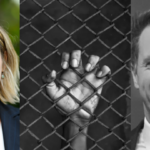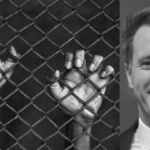NSW Government Intent on Incarcerating Rather Than Diverting Troubled Youths

“We’ve got more to do, and we are looking at legislative change,” NSW premier Chris Minns told reporters on Gomeroi Country in the northern NSW town of Moree last Friday.
The NSW Labor leader was referring to changing the law once more in response to ongoing regional youth offending, and he went on to announce that a 12 month temporary restriction on youth bail law in respect of certain criminal offences, which passed NSW parliament on 22 March 2024, would be extended, as its resulted in more than an 80 percent of youths in gaol being on remand.
The flagging of the extension of the temporary youth bail regime, during the premier’s second visit to Moree in 12 months, was cloaked in the announcement of an extra $2 million in funding to cover youth engagement and support programs in the town, which comes after an initial $13.4 million targeted response rolled out last year.
Raising the age of criminal responsibility was not on the agenda, Minns declared last March before embarking upon the details of the tough-on-youth-crime package, which then was not the usual for NSW. But a year later, as Minns again addressed the issue, it’s now clear that these moves are part of a nationwide crackdown on youth crime that, for the most part, targets First Nations kids.
NSW Greens MLC Sue Higginson has condemned the premier on his move to ensure that more children continue to be remanded, despite the spike in those being paroled revealing that the law is not reducing offending, and she stressed that the changes were never “designed to reduce crime” but were rather “only designed to make the government appear tough on crime”.
Youth crime crackdown
Section 22C of the Bail Act 2013 (NSW) contains the law pertaining to the temporary limitation on bail, which involves bail being unavailable for young people already on conditional release for a relevant offence, who go on to commit another relevant offence.
A bail application is to be refused under such circumstances, “unless the bail authority has a high degree of confidence the young person will not commit a serious indictable offence” if released on bail once more.
This law applies to 14- to 17-year-olds.
The relevant offences the temporary restriction applies to are taking a conveyance without consent, taking motor vehicle with assault and stealing motor vehicle or vessel, along with serious break and enter offences carrying a penalty of least 14 years under part 4 division 4 of the Crimes Act 1900 (NSW), or to the commission of a performance crime involving one of the other relevant offences.
This law was to sunset on 3 April this year, but NSW Labor is set to extend it for another 36 months as it’s led to 80 percent of young people being bail refused and placed on remand.
The performance crime offence was the other main law reform contained in the Bail and Crimes Amendment Bill 2024 that was passed last March and accompanied by a broader $26.2 million youth crime prevention funding package, with the $13.4 million slated for Moree and an additional $12.9 million being invested into statewide regional youth initiatives.
Section 154K of the Crimes Act contains the relatively new offence of performance crime, which involves a person committing either a motor vehicle crime or a break and enter offence and then ‘posting and boasting’ about it online. This results in a maximum penalty that involves the original penalty relating to the criminal act that’s being bragged about online, plus an extra two years inside.
Redundant law reform posturing
“The Minns Labor government’s response is wrongly based on the further criminalisation of young people through police-led operations, overpolicing, the refusal of bail and incarceration, further entrenching cycles of criminality, which undermines all of the community’s good work,” Higginson said in 7 February statement.
“It is the antithesis of community-led initiative and response, actual diversion from the criminal justice system and therapeutic responses, which we know is what’s needed to actually prevent the behaviours that led to offensive behaviour,” the Greens justice spokesperson continued.
Higginson added that the extra funding for youth support and diversion, especially Aboriginal-controlled initiatives, is welcomed and are long overdue, but their effectiveness is hindered by the accompanying tough law-and-order campaign, with its inclusion of extra children being remanded in goal, as it serves to ensure that more children enter into the revolving door that is the prison system.
The temporary bail law is being extended despite then president of the Law Society of NSW Brett McGrath referring to it as a “drive for political action instead of evidence-based, well-considered reform”, and going on to explain that tightening bail will only result in more children in gaol, which does nothing to address the causes of offending but does much to set kids up for a return to prison.
“The government is driving higher crime rates and higher recidivism through this populist law and order agenda, that’s what the evidence tells us,” Higginson underscored.
Colonial criminal justice
NSW Bureau of Crime Statistics and Research figures reveal that of the 209 children in the NSW youth prison system last September, 125, or 60 percent of them, were First Nations kids.
Yet Aboriginal and Torres Strait Islander children only account for 6.2 percent of the overall NSW population aged between 10 to 17 years of age.
These disproportionate figures are repeated nationwide, and the youth crime crackdown is occurring right across the continent.
“Increasing child imprisonment has not only failed to reduce crime but is putting another generation of children into an express training program for a life of crime and suffering,” Aboriginal Legal Service NSW/ACT chief executive Karly Warner said in a 10 February statement.
“Locking kids up has never worked, anywhere. Yet at a time when families are struggling under the cost-of-living crisis, the NSW government is costing taxpayers millions with its failed bail laws and law-and-order rhetoric,” the lawyer continued.
The ALS further outlined that spending on child prisons in NSW has increased for its ninth consecutive year and that the cost of imprisoning a single child for a year is around $1 million, which does beg the question as to whether the investment of such taxpayer money specifically to assist underprivileged children in the community might result in less cars being nicked.
“Aboriginal children make up 88 percent of children captured by the legislation, and 90 percent of children imprisoned under the new bail laws,” Warner further set out.
“Despite promises to do things differently under Closing the Gap, Aboriginal children are being sacrificed to the premier’s tough-on-crime political agenda in a race to the bottom the Labor government can never win,” the palawa woman ended.







